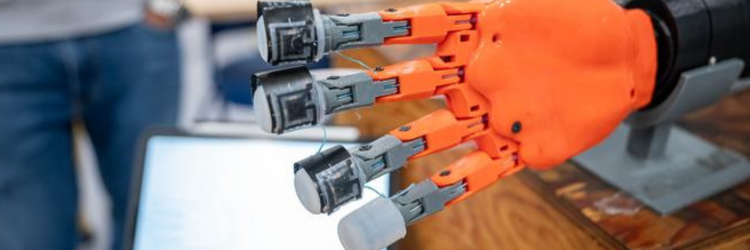
Breakthrough ‘Robot Skin’ Responds to Tactile Stimuli
UBC and Honda researchers developed a smart, stretchable highly sensitive soft sensor
skin with potential robotics and prosthetics applications. Atop a prosthetic arm or a robotic
limb, the sensor skin provides touch sensitivity and dexterity, addressing difficult
movements for machines. The sensor’s soft skin makes human interactions safer.
UBC developed the technology in collaboration with Frontier Robotics, Honda’s research
institute. Honda has been developing robots including he well-known ASIMO robot,
devices to assist walking, and the emerging Honda Avatar Robot.
The sensor is made of silicone rubber, and it can buckle and wrinkle, just like human skin.
It uses weak electric fields to sense objects. The sensor is supple and can detect forces into
and along its surface, key for robots that are in contact with people. The new sensor is also
simple to fabricate, making it easy to scale to cover large surface areas and to manufacture large quantities. Increasingly, developments in sensors and artificial intelligence will need
to go hand in hand.
